
Didactic sequence is the set of planned and interconnected activities that teach a content. It is something that can be done across all subjects to help organize the teacher's work in a progressive way that will help both the teacher and the students.
If Things Were Mothers – Sylvia Orthof
If the moon were mother, it would be mother of the stars,
heaven would be her home, home of the beautiful stars.
If the mermaid were a mother, she would be the mother of the fish,
the sea would be a garden, the boats their paths.
If the house were a mother, it would be the mother of the windows,
talk to the moon about the star children,
I would talk about recipes, wind pastries, quindins,
I would lend the kitchen to the moon to make puddings!
If the earth were mother, it would be the mother of seeds,
for mother is everything she embraces, finds it funny, and loves the agent.
If a fairy were a mother, she would be a mother of joy,
every mother is a little fairy… Our fairy mother would be.
If a witch was a mother,
would be funny mother:
she would be the mother of brooms, of the Broom Family!
If the kettle were a mother, it would be the mother of boiled water,
I would make tea and medicine for life's illnesses.
If the table was a mother,
the daughters, being chairs,
would sit well,
they would have “good manners”.
Every mother is different: a real mother, or a surrogate mother,
mother grandmother and mother auntie, Maria, Filó, Francisca,
Gertrude, Malvina, Alice,
Every mother is like I said.
Mrs. Mummy scolds and kisses,
misses, hits, sets the table,
cooks, writes, works out,
laugh, forget, remember and cry,
bring medicine and dessert …
There are fathers who are “mother-like”…
This one, then, is a beauty!
Below we will leave some activities of teaching sequence: If things were mothers.
Write the name of the figure in alphabetical order.
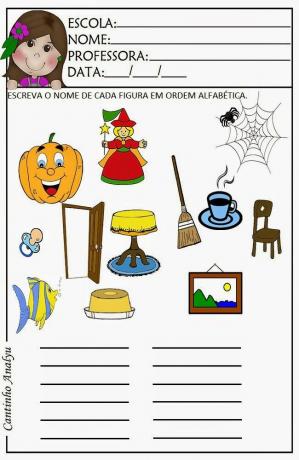
Illustrate the poem your way.

and Things Were Mothers
Do the activity below
Carefully read the verbs in the poem, if things were mothers, then circle the words that end with the same sound.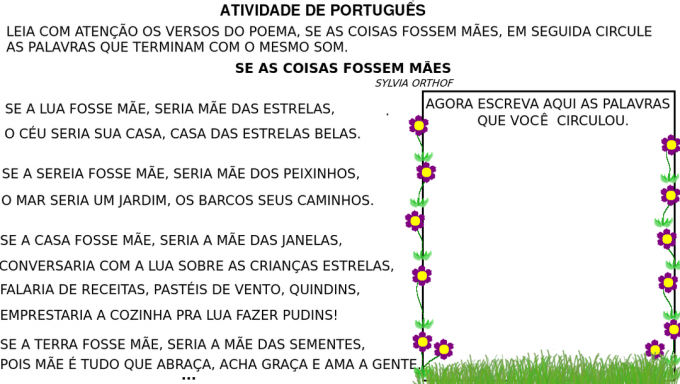
Complete according to history.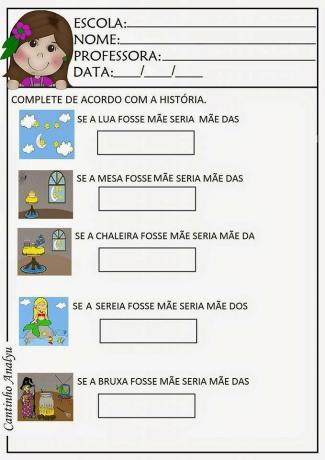
separate the words with a /, then write each one in the square and find out what is written. 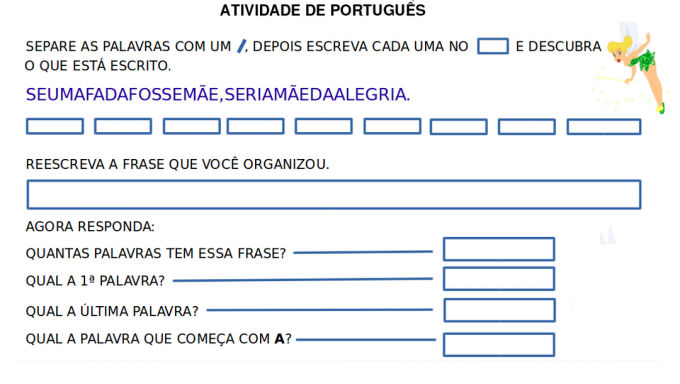
Carefully read the verbs of the poem, If things were mothers, then answer
Let's talk about this verse of the poem, If Things Were Mother, by Sylvia Orthof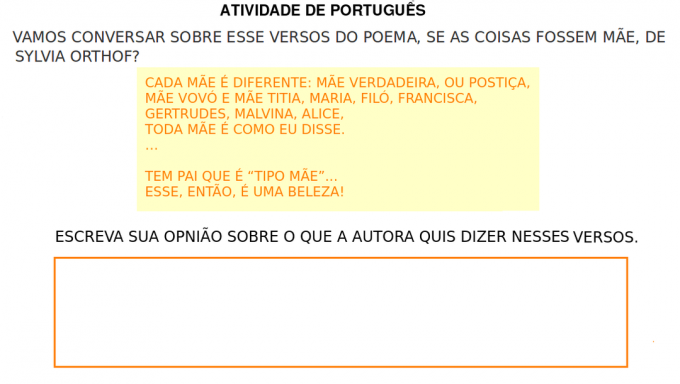
Fill in the blanks by completing the lines from the poem by Sylvia Orthof, If Things Were Mothers.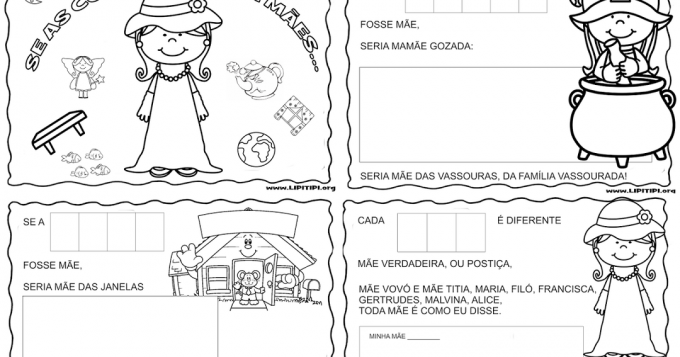
Fill in the blanks by completing the lines of Sylvia Orthof's poem, if things were a mother.
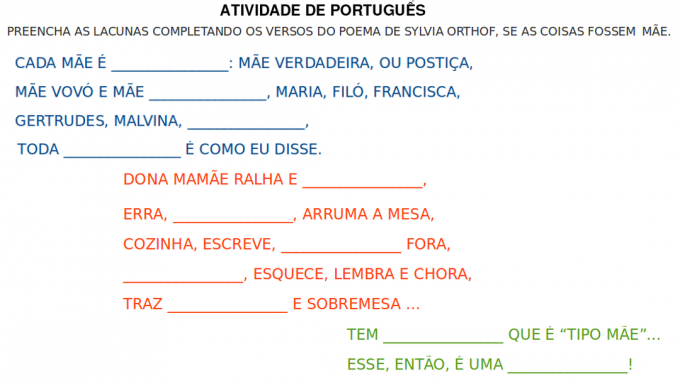
Did you like it? Share this post on your social network
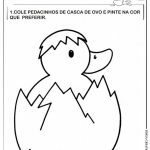 EDUCATIONAL ACTIVITIES ABOUT “THE UGLY DUCKLING”
EDUCATIONAL ACTIVITIES ABOUT “THE UGLY DUCKLING”
 READY CLASS PLAN OF THE BOOK “MARIA-VAI-COM-AS-OTHERS”
READY CLASS PLAN OF THE BOOK “MARIA-VAI-COM-AS-OTHERS”
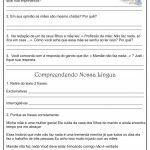 Text: “Mommy Does Nothing” with Interpretation
Text: “Mommy Does Nothing” with Interpretation
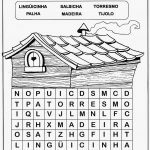 The Three Little Pigs Activities for Early Childhood Education
The Three Little Pigs Activities for Early Childhood Education
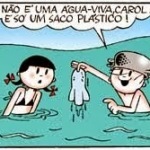 Crazy Boy – Text Interpretation
Crazy Boy – Text Interpretation
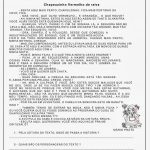 Little Red Riding Hood Text Interpretation Activities
Little Red Riding Hood Text Interpretation Activities
This site uses Akismet to reduce spam. Learn how your comment data is processed.
